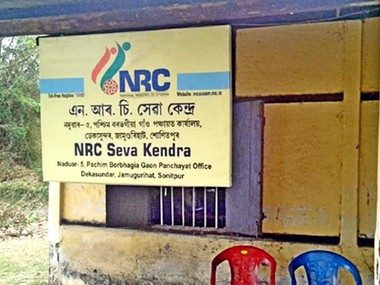The National Register of Citizens (NRC) draft release in Assam has rendered 40 lakh people homeless. Citizenship for Bangladeshi immigrants becomes a critical political issue in the context of emerging religious nationalism. Bangla speaking immigrants are treated as a threat to national security, and all methods of conflict governance have failed to address this issue. Every Bangla speaking individual has to prove his/her identity every day to survive. It’s a historical truth that the formation of East Pakistan in 1947 forced many to Bangladeshis or Bangla speaking people to migrate to India. The formation of Bangladesh in 1971, in fact, prevented such massive migration. Immigration to Assam has a history of its own, a paper by Sanjay Bhardwaj (‘Illegal Bangladeshi Migration: Evaluating India-Bangladesh Approaches’, published in CLAWS Journal, Winter 2014) shows; between 1911 to 1931, more than a million Bengalis migrated to India and settled down in the Brahmaputra Valley in Assam. According to Bhardwaj, it continued later. It had been a political issue in Assam, but does not become so in West Bengal. Linguistic and cultural similarities between Bangladesh and West Bengal, and a sizeable percentage of Muslims in the latter, meant there isn’t the same sense of insecurity in Bengal as in Assam. [caption id=“attachment_4841281” align=“alignleft” width=“380”]
 Representational image. Courtesy: Nrcassam.nic.in[/caption] But the Bangladeshi immigrants, or the Bengali speaking community, become a political issue in Assam because of identity and religion. Settling down in Assam had never been an easy task for the immigrants. The Assam Accord in 1985 was an example of the local resistance against Bangladeshi immigrants. As per the Accord, those who came to Assam prior to 1 January 1966, including those whose names appeared on electoral rolls used for the 1967 elections, shall be regularised. It was a huge political success for the state of Assam, and the major beneficiary was the local political movement and parties like the Asom Gana Parishad. They came to power on this massive ground support. Local economy and culture Every instance of immigration and influx of refugees creates pressure on the local economy and culture. Understanding those changes and accepting them is a political economy process. The ‘sons of the soil’ approach has proved insignificant in the country, except for some short-term political gains. Like the Maratha consciousness in Mumbai and the formation of Shiv Sena, although even the Sena found it difficult to stick to the ‘sons of the soil’ ideology. The economy of Mumbai is a major factor behind this, since the capital owning classes are from across the country, and they are the sources of funding to political parties, and control the local economy and resources as well. However, this is not the case in Assam, where the immigrants have not become an economic class nor have they owned major resources. History also says that Muslims were brought to Assam as plantation workers by the British. Muslims in Assam have not moved much from their peasant status, and no political party in the state speaks in favour of them. Their contribution to the state’s economy is spread across the informal sector and the huge labour contribution.
Bangladeshi immigrants, or the Bengali speaking community, became a political issue in Assam because of identity and religion, but not so in West Bengal, because of linguistic and cultural similarities
Advertisement
End of Article


)

)
)
)
)
)
)
)
)



